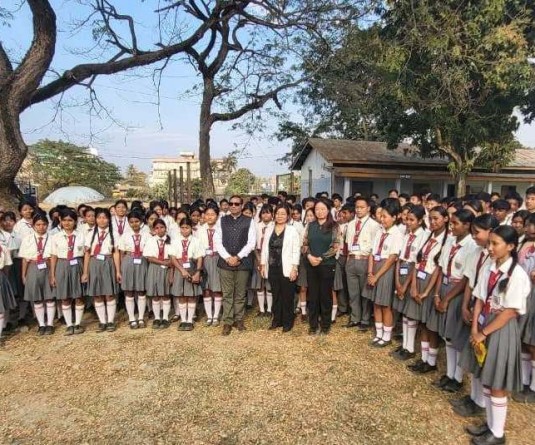
KOHIMA, NOVEMBER 12 (MExN): The Naga Students’ Federation (NSF) has urged the Government of Nagaland to establish an independent Inner Line Permit (ILP) Commission to tackle the growing issue of illegal immigration into the state.
In a representation addressed to the Chief Secretary, the NSF acknowledged the government's recent inclusion of the districts of Dimapur, Chümoukedima, and Niuland under the ILP regime but raised concerns about the continued, unchecked influx of illegal immigrants into Nagaland, which it says threatens the region’s cultural heritage, demographic balance, and security.
The Inner Line Permit (ILP), a regulatory framework with over 150 years of legacy, was established to control and manage entry into the state, primarily to safeguard the interests, cultural heritage, and security of indigenous communities.
While it has played an important role in regulating tourist flow and entry into our region, the NSF expressed concern that recent years have witnessed a significant lapse in its strict implementation.
“The influx of illegal immigrants has strained the social fabric of our society and raised questions about the future safety, security, and cohesion of our communities. The situation demands decisive action that transcends routine administrative measures, recognizing the urgency and magnitude of the threat posed,” it maintained.
In this regard, it proposed the immediate establishment of a separate and independent ILP Commission dedicated to enforcing a comprehensive and robust system to monitor and manage entries into Nagaland.
“Such a commission should be tasked with reviewing, refining, and strictly implementing ILP protocols, with all necessary modalities in place,” it added.
The NSF further recommended that the process of establishing this commission be completed within a six-month timeframe, in close consultation with all relevant stakeholders, to ensure a collaborative and sustainable approach.
This ILP Commission should serve as a specialized body with a singular focus, working in coordination with local and regional authorities to address the issue at its core. It should also facilitate greater community involvement in monitoring and reporting, providing the commission with timely insights to enhance its operational effectiveness.
The proposed ILP Commission, according to the NSF, would address the following-
Enforce ILP Regulations Stringently: Ensure strict compliance with ILP protocols in every district, with regular enforcement to prevent unauthorized entry.
Empower Village Councils: Encourage Village Councils to withhold Permanent Residential Certificates (PRC) and other legal documents from illegal immigrants to prevent unauthorized adoption into local communities.
Enhance Community Vigilance and Collaboration: Promote community awareness to encourage vigilance and reporting of suspicious activity, in collaboration with law enforcement.
The NSF emphasized that the establishment of an independent ILP Commission is essential for preserving the unique identity and security of the Naga people, and is a critical step towards addressing the challenges posed by illegal immigration.






